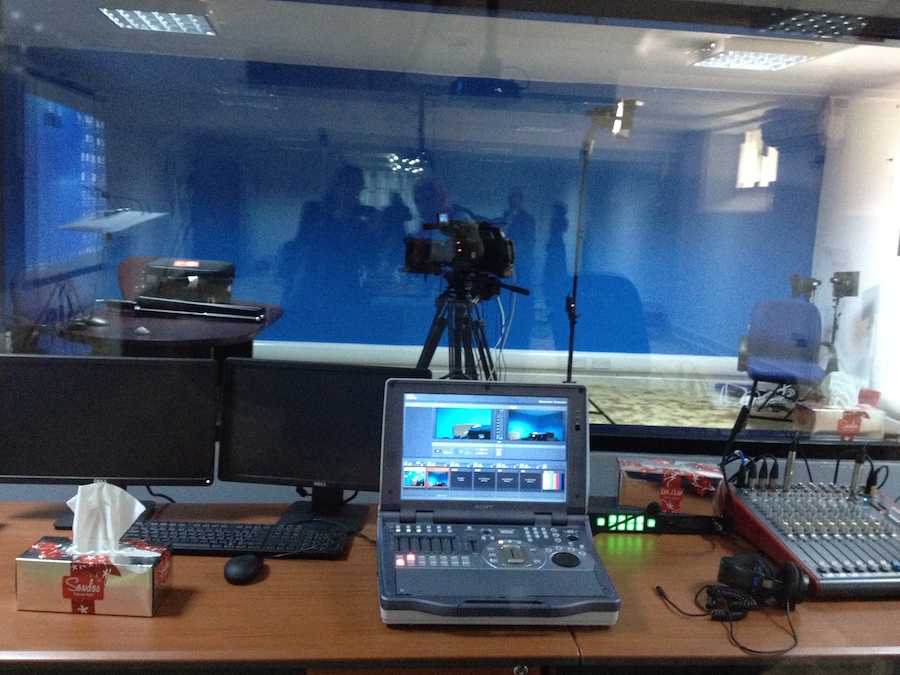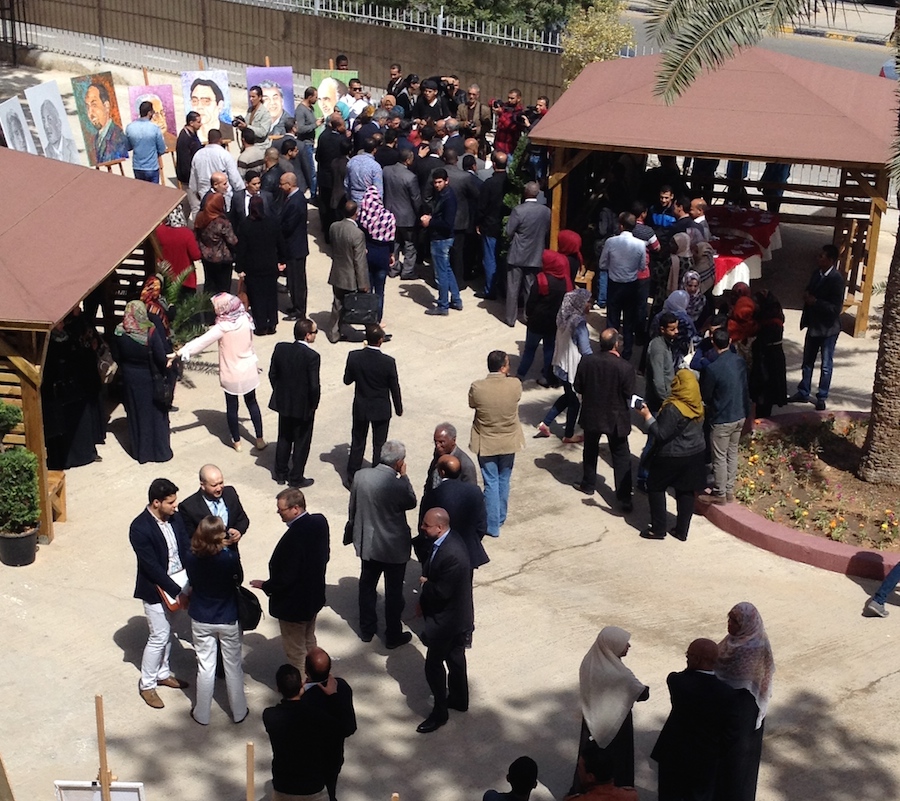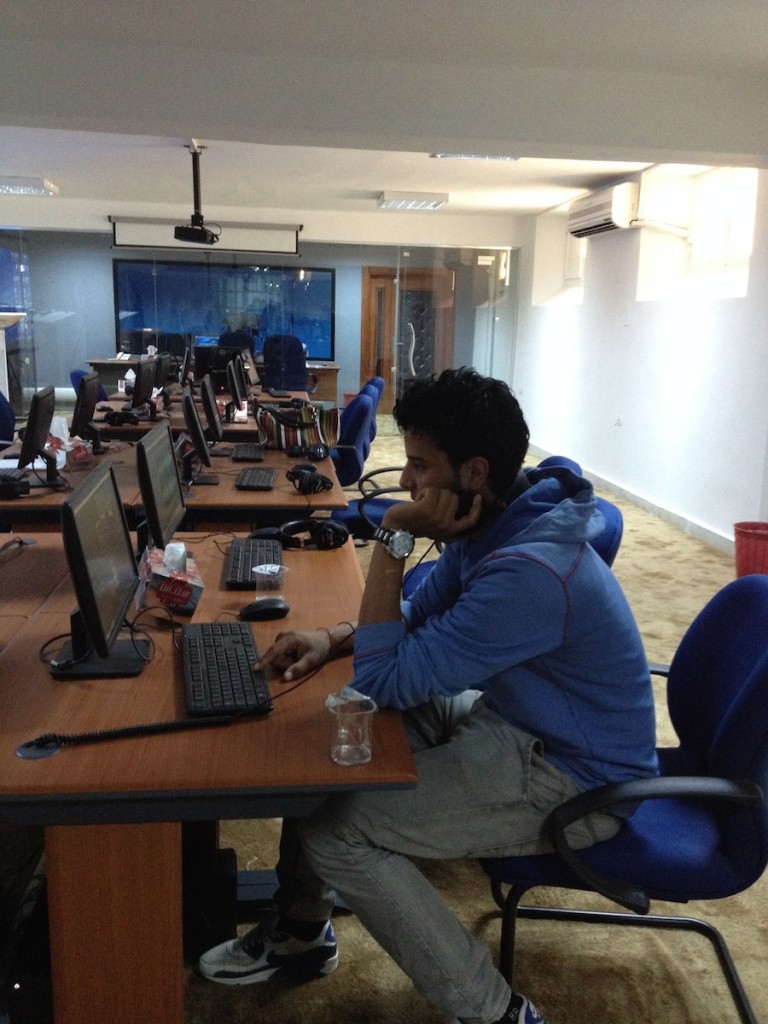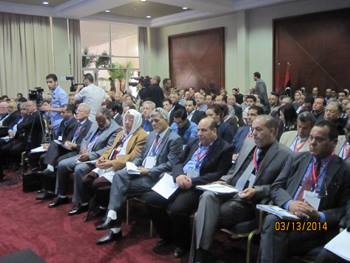By Tom Westcott.

Tripoli, 31 March 2014:
Libya’s budding young broadcast journalists will finally have the chance to hone their practical skills in . . .[restrict]a new purpose-built media lab at Tripoli University.
The new lab, which includes an editing suite, a training studio that functions as both a radio and TV studio, and work stations, will enable journalism students to gain experience using professional equipment.
The new facility, which is a partnership project between Tripoli University and the Institute for War and Peace Reporting (IWPR) is a tremendous boost to the university’s media department.
“What the media lab provides is a link between the academic world and the work world, which effectively recreates a television or radio studio for training purposes,” said IWPR Programme Director in Libya Seth Meixner.
“It is exactly what someone might see on the job, and that was our goal here,” he said. “It is giving students the chance to work in real-time environment using similar tools to those found in most newsrooms.”

At last week’s official opening of the facility, staff and students said they were delighted with the new lab and Tripoli University media department professor Khaled Gulam described it as a cornerstone in moving media students from theory to practice. “One of the objectives here is to change the shape of Libyan media,” he said
“Before this lab was installed, 90 percent of the curriculum was theory-based but now we expect 50 percent will be practical,” Gulam said. At least 100 students per year would benefit from the media lab, he said, adding that second and third year students were already using the facility.
The IWPR would continue to provide training and sideline support, particularly in an advisory capacity, during the early stages of the media lab project, Meixner said.
The idea for the media lab sprung out of other on-the-job training the IWPR was doing in Libya. “We have a number of Arabic-speaking trainers working at TV and radio stations here in Libya and we started noticing that many people had received no previous training,” said IWPR’s MENA Director Duncan Furey.
“People were graduating from journalism courses very well-versed in theory but without any practical knowledge or experience, and unfamiliar with modern technologies,” he said. When IWPR approached several of the largest Libyan universities, it discovered that these had no facilities.
“We entered into a partnership to initially build two labs – one in Tripoli and one in Zawia – to boost student skills in editing and production,” Furey said. “The idea is to layer these practical skills on top of the existing curriculum using equipment that can be sourced and found locally.”
The partnership will also see third-year students take part in internship programmes to give a further boost to their practical skills and future job prospects.
It is anticipated that a similar media lab at Zawia University, currently under construction, will be completed within the next two months.
The Tripoli University media lab project was part-funded by the UK Foreign and Commonwealth Office.













